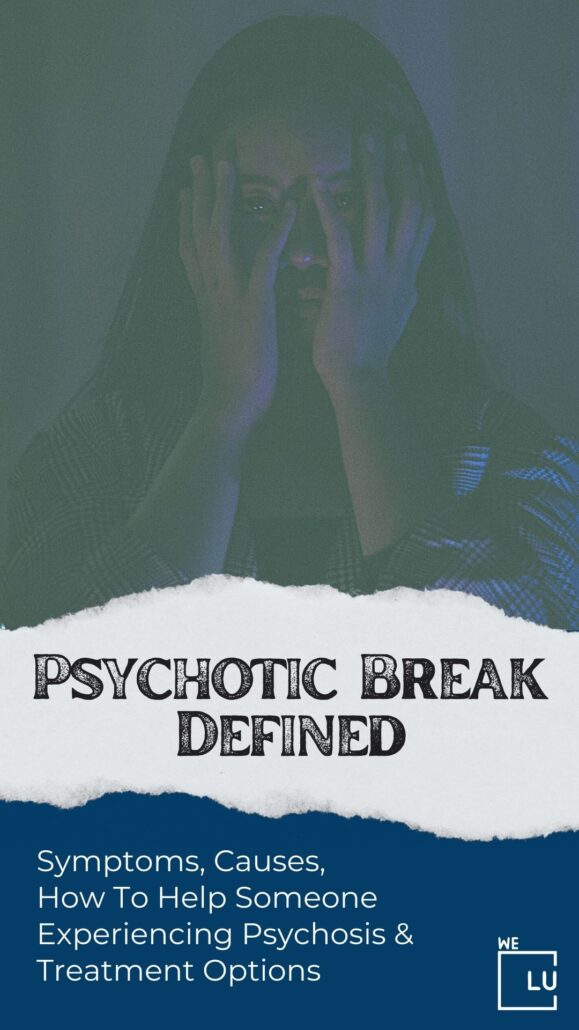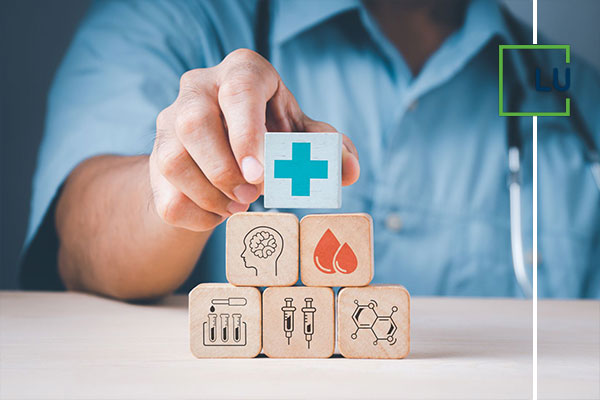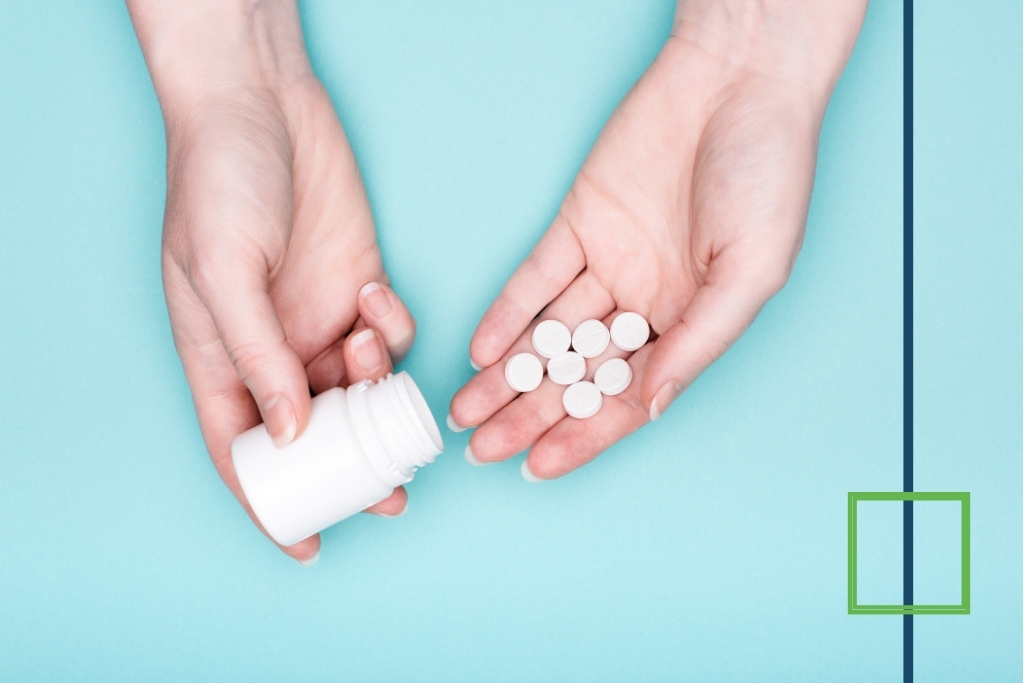What is Drug Induced Psychosis?
Psychosis is a temporary mental health issue where someone sees the world differently than those around them. Drug-induced psychosis occurs when substance abuse leads to episodes of delusions or hallucinations, potentially triggering mental illnesses like bipolar disorder or schizophrenia, especially if predisposed.
Taking too much of a drug or mixing substances can provoke paranoia and psychotic episodes, while withdrawal can also be a significant risk factor. Psychosis involves irrational beliefs (delusions) and intense sensory perceptions (hallucinations) that are not grounded in reality, making individuals vividly experience things that don’t exist.
Psychosis during withdrawal can also occur in individuals with long-term addiction to substances like amphetamines, opiates, and inhalants, often requiring sedation or close monitoring. For methamphetamine, psychosis may even reappear spontaneously in individuals who have been drug-free for many years.
If you or your loved one is struggling with drug psychosis, seek professional help immediately. Contact We Level Up Florida for compassionate support. Each call is free and confidential.
The We Level Up network specializes in mental health and addiction treatment, with We Level Up Florida providing primary mental health care. If you’re facing challenges with addiction and co-occurring disorders, reach out to us today for options on accessing detox and rehab services.
The Most Common Drug Induced Psychosis symptoms
Drug-induced psychosis symptoms typically worsen gradually as drug use becomes more frequent and the dosage increases. Using psychoactive drugs, especially with an underlying mental health condition, can lead to extreme paranoia and accelerate the onset of disorders like bipolar disorder and schizophrenia.
Prolonged drug and alcohol use may also trigger psychosis symptoms even without a diagnosed mental illness.
The most common symptoms of drug-induced psychosis are:
- Delusions.
- Hallucinations.
- Extreme Paranoia.
- Distorted Perception of Reality.
- Impaired Thinking.
- Agitation.
- Incoherent Speech.
- Disorganized Behavior.
- Heightened Anxiety.
- Mood Swings.
What are the Symptoms of Delusion?
Delusion is a persistent, false belief resistant to reason or contrary evidence. The most common signs are:
- Holding solid and irrational beliefs despite evidence to the contrary.
- Maintaining beliefs that are resistant to change or reason.
- Paranoia, such as believing in plots, conspiracies, or persecution without basis.
- An exaggerated sense of self-importance or abilities.
- Embracing unusual or implausible thoughts not in line with reality.
- Misinterpreting sensory input leads to distorted perceptions.
- Interpreting unrelated events as having personal significance.
- Having delusions that are influenced by or shared with others.
Delusions can vary in intensity and may be associated with various mental health conditions.
What are the Symptoms of Hallucination?
Hallucinations are distorted perceptions of your surroundings, often involving changes in what you see or hear and sometimes extending to smell and touch.
The common symptoms are:
- Seeing Things: Perceiving visual stimuli that others do not.
- Hearing Voices: Auditory hallucinations, such as hearing voices or sounds.
- Feeling Sensations: Experiencing tactile sensations, like touching or being touched, without external stimuli.
- Smelling Odors: Perceiving smells that are not present in the environment.
- Tasting Things: Sensing tastes without any corresponding external stimuli.
- Imaginary Objects: Seeing or feeling objects that don’t exist.
- Involuntary Movements: Reacting physically to hallucinated stimuli.
- Full Sensory Experiences: Having vivid, sensory-rich experiences that are not grounded in reality.
Hallucinations can occur in various sensory modalities and are often associated with psychiatric disorders, substance abuse, or certain medical conditions.
What Drugs Cause Psychosis?
Certain drugs like cannabis, cocaine, amphetamines, and hallucinogens, including LSD and ecstasy, are commonly associated with drug-induced psychosis. Symptoms vary based on the drugs and their quantity, but excessive use can lead to prolonged symptoms.
Also, substances like cannabis, when used for an extended period, may worsen mental health and induce symptoms of psychosis, such as paranoia. Prescription medication, like ketamine, can mimic psychosis when misused, often leading to delusions and disordered thinking.
These are the most common substances that can cause psychosis:
- Cannabis.
- Cocaine.
- Amphetamines.
- Methamphetamine.
- Psychedelic drugs (e.g., LSD).
- Club drugs (e.g., ecstasy, MDMA).
- Prescription medication (e.g., ketamine).

Skip To:
Learn More:
- What is Postpartum Psychosis? Symptoms, Risks, and Treatment
- What is Bipolar Psychosis? Learn More About Bipolar with Psychosis Symptoms, Cause, and Treatment. How Long Does Bipolar Psychosis Last?
- The Danger of Alcohol-Induced Psychosis
- Manic Depression Meaning, Symptoms, and Effective Treatment
- Psychosis Test Free and Online Confidential Results
- Hallucinogen Persisting Perception Disorder Symptoms, Causes, and Treatment
- Persecutory Delusions Examples, Symptoms, and Treatment. Persecutory Delusional Disorder.
- Free Online Derealization Test. Simple and Easy Depersonalization-Derealization Disorder Test. Am I Experiencing DPDR?
- Bipolar Schizophrenia Differences. Bipolar Vs Schizophrenia. Schizophrenia Vs Bipolar Symptoms. Bipolar and Schizophrenia Causes. Schizophrenia Bipolar and Schizoaffective Disorder.
- How a Person With Bipolar Thinks? Fact Vs. Fiction
Opioids, such as heroin or prescription painkillers, can lead to opioid-induced psychosis, which may include symptoms like hallucinations and delusions, especially during intoxication or withdrawal. Similarly, alcohol can cause alcohol-induced psychosis, characterized by distorted thinking and perceptions, particularly in cases of heavy or chronic alcohol consumption.
Get drug induced psychosis counseling from We Level Up Florida’s mental health therapists. Reach out for professional support with a free call to our 24/7 mental health hotline.
Get Help. Get Better. Get Your Life Back.
Searching for Accredited Dual Diagnosis Mental Health Centers Near You?
Even if therapy failed previously, or are in the middle of a difficult crisis, we stand ready to support you. Our trusted behavioral health specialists will not give up on you. When you feel ready or just want someone to speak to about counseling alternatives to change your life call us. Even if we cannot assist you, we will lead you to wherever you can get support. There is no obligation. Call our hotline today.
FREE 24/7 Dual Diagnosis Mental Health Services Hotline
Drug-Induced Psychosis Treatment and Recovery
If you’re diagnosed with drug-induced psychosis, it’s often part of a co-existing issue involving substance addiction and an underlying mental illness. To support effective recovery, a medically assisted detoxification program is first conducted to stabilize your health and manage withdrawal symptoms. After this, an individualized treatment plan addresses any underlying mental health issues contributing to psychosis symptoms.
Removing the drug may alleviate psychosis symptoms, but if you have an underlying mental health condition like anxiety or depression or a diagnosed psychotic disorder such as bipolar disorder or schizophrenia, additional treatment is necessary for recovery.
In cases where drug use triggers psychosis to cope with an underlying mental illness, a diagnosis assesses whether symptoms persist without the drug. Also, drug-induced psychosis can become more apparent when symptoms emerge after stopping drug use, progressing from initial signs like social withdrawal to delusions and hallucinations.
If the underlying mental health condition involves psychotic episodes, long-term medication like antidepressants or antipsychotics may be recommended, especially if delusions and hallucinations are frequent or severe.
In addressing drug-induced psychosis, the initial step involves stopping the use of the triggering drug. Once medically stabilized after detox, cognitive behavioral therapy (CBT) is employed to explore thoughts and moods preceding psychotic episodes, aiding emotional management and paranoia awareness.
Family therapy may also be utilized for comprehensive support, reducing the need for extensive hospital treatment and preventing relapse. We Level Up’s experienced therapists and consultants provide a safe and tailored treatment plan to alleviate associated symptoms of psychosis and drug addiction while addressing underlying health issues triggered by substance abuse.
We Level Up Drug Induced Psychosis Treatment Center
The We Level Up network is dedicated to comprehensive mental health and secondary addiction care, offering specialized services through We Level Up Florida and Washington for primary mental health care and addiction rehab centers from California, Texas, and New Jersey. Our expertise extends to addressing the complex needs of individuals dealing with mental health problems and co-occurring disorders.
Start your journey to healing by reaching out to We Level Up Florida Mental Health Treatment Center. Call us for a free and confidential assessment.

End the Emotional Pain. Get Your Life Back.
Feeling Depressed, Anxious or Struggling with Mental Health Illness? Get Safe Comfortable Mental Health Dual Diagnosis High-Quality Therapy From Counselors That Care. Begin Your Recovery Now.
Hotline (855) 940-6125Withdrawals and Drug-Induced Psychosis
Physical addiction or dependence is marked by withdrawal symptoms when the person stops using the substance, and depending on the substance, withdrawal can include psychosis.
Alcohol, for instance, can lead to drug-induced psychosis during withdrawal, known as delirium tremens, especially after long-term consumption. Other drugs that can cause delirium tremens include benzodiazepines and barbiturates.
Delirium Tremens Dangers and Symptoms
The symptoms of delirium tremens may include the following:
- Severe Confusion.
- Rapid Heartbeat.
- Hallucinations.
- Tremors.
- Profuse Sweating.
- Agitation.
- High Blood Pressure.
- Fever.
- Delusions.
- Seizures.
Delirium tremens is a medical emergency due to severe psychotic symptoms and life-threatening seizures.
How Long Does Drug-Induced Psychosis Last?
The duration of drug-induced psychosis varies based on factors such as the type of substance, dosage, and individual response. In many cases, symptoms begin to subside as the drug exits the system during withdrawal.
However, the complete resolution of symptoms and the restoration of mental health can take time, ranging from days to weeks. Seeking professional guidance and treatment is crucial to managing and shortening the duration of drug-induced psychosis, ensuring a more effective and sustainable recovery process.
First-class Facilities & Amenities
World-class High-Quality Mental Health Services & Behavioral Health Substance Abuse Treatment
Rehab Centers TourRenowned Mental Health Centers. Serene Private Facilities. Inpatient Rehab Programs Vary.
Mental Health Helpline (855) 940-6125Proven recovery success experience, backed by a Team w/ History of:
15+
Years of Unified Experience
100s
5-Star Reviews Across Our Centers
10K
Recovery Successes
- Comprehensive Dual-Diagnosis Treatment
- Complimentary Family & Alumni Programs
- Coaching, Recovery & Development Events
- Comfortable Onsite Medical Detox Center
The Risks of Permanent Drug-Induced Psychosis
Permanent drug-induced psychosis poses significant risks to an individual’s mental health. Prolonged substance abuse, especially of certain drugs, can lead to lasting alterations in brain function, contributing to persistent psychotic symptoms. These risks highlight the extent of seeking timely and comprehensive treatment to address the underlying causes and mitigate potential long-term consequences associated with permanent drug-induced psychosis.
What Drugs Can Cause Permanent Psychosis?
The following substances, when abused over an extended period, pose a risk of contributing to permanent psychosis.
- Methamphetamine: Prolonged and heavy methamphetamine abuse can lead to persistent alterations in brain function, contributing to long-lasting psychotic symptoms.
- PCP (Phencyclidine): Prolonged and intense use of PCP can lead to lasting alterations in mental health, causing recurring psychosis.
- Synthetic Cannabinoids: Often referred to as “Spice” or “K2,” these drugs are designed to mimic the effects of natural cannabinoids found in marijuana but can be much more potent. These drugs can bind more strongly to cannabinoid receptors in the brain, leading to unpredictable and harmful effects, including permanent psychosis.
- Hallucinogens (e.g., LSD, psilocybin): Hallucinogen-persisting perception disorder (HPPD) happens when someone continues to re-experience the perceptual disturbances they had when they were under the influence of a hallucinogen, even when they are sober. The symptoms include visual disturbances, such as seeing geometric patterns, flashes of light, or trails of moving objects.

Drug-induced psychosis is often manageable with appropriate and timely intervention. The key to effective management involves addressing the underlying causes, such as substance abuse, and providing comprehensive treatment. Seeking professional help and adhering to a tailored treatment plan significantly contribute to the successful management of drug-induced psychosis.
If you’re struggling with psychosis from drugs, may it be through prescriptions or illicit ones, don’t hesitate to reach out to the We Level Up Florida helpline for dedicated support and guidance. Each call is free and confidential.
World-class, Accredited, 5-Star Reviewed, Effective Mental Health Dual Diagnosis Programs. Complete Integrated Inpatient Rehab with Free Post Discharge Therapy Planning.
CALL (855) 940-6125End the Emotional Pain Rollercoaster. Gain Stability & Happiness Through Recovery Treatment. Start Mental Health Counseling Today. Get Free No-obligation Guidance by Behaviroal Health Specialists Who Understand Mental Health Recovery.
Psychotic Break vs Nervous Breakdown Defined, Symptoms, Causes, and Recovery | Informative Video
Experience Transformative Recovery at the We Level Up Treatment Center.
See our authentic success stories. Get inspired. Get the help you deserve.



Start a New Life
Begin with a free call to a behavioral health treatment advisor. Learn more about our dual-diagnosis programs. The We Level Up treatment center network delivers recovery programs that vary by each treatment facility. Call to learn more.
- Personalized Care
- Caring Accountable Staff
- World-class Amenities
- Licensed & Accredited
- Renowned w/ 5-Star Reviews
We’ll Call You
Search We Level Up FL Drug Induced Psychosis, Mental Health Topics, & Resources
Sources
- Niebrzydowska A, Grabowski J. Medication-induced Psychotic Disorder. A Review of Selected Drugs Side Effects. Psychiatr Danub. 2022 Spring;34(1):11-18. Doi: 10.24869/psyd.2022.11. PMID: 35467605.
- Calabrese J, Al Khalili Y. Psychosis. [Updated 2023 May 1]. In: StatPearls [Internet]. Treasure Island (FL): StatPearls Publishing; 2023 Jan-. Available from: https://www.ncbi.nlm.nih.gov/books/NBK546579/
- Tamminga CA, Lahti AC. Treatments for chronic psychosis. Dialogues Clin Neurosci. 2001 Dec;3(4):281-92. Doi: 10.31887/DCNS.2001.3.4/ctamminga. PMID: 22033485; PMCID: PMC3181661.
- Fiorentini A, Cantù F, Crisanti C, Cereda G, Oldani L, Brambilla P. Substance-Induced Psychoses: An Updated Literature Review. Front Psychiatry. 2021 Dec 23;12:694863. Doi: 10.3389/fpsyt.2021.694863. PMID: 35002789; PMCID: PMC8732862. More Topics About Drugs Induced Psychosis, Psychosis Drugs, How Long Does Drug Induced Psychosis Last?
- Ham S, Kim TK, Chung S, Im HI. Drug Abuse and Psychosis: New Insights into Drug-induced Psychosis. Exp Neurobiol. 2017 Feb;26(1):11-24. Doi: 10.5607/en.2017.26.1.11. Epub 2017 Feb 7. PMID: 28243163; PMCID: PMC5326711.
- Drug Abuse and Mental Illness Fast Facts – Department of Justice (.gov)
- First-Episode Psychosis and Co-Occurring Substance Use Disorders – Substance Abuse and Mental Health Services Administration (SAMHSA)
- National Collaborating Centre for Mental Health (UK). Psychosis with Coexisting Substance Misuse: Assessment and Management in Adults and Young People. Leicester (UK): British Psychological Society (UK); 2011. (NICE Clinical Guidelines, No. 120.) 2, PSYCHOSIS WITH COEXISTING SUBSTANCE MISUSE. Available from: https://www.ncbi.nlm.nih.gov/books/NBK109796/
- Kumar S, Soren S, Chaudhury S. Hallucinations: Etiology and clinical implications. Ind Psychiatry J. 2009 Jul;18(2):119-26. Doi: 10.4103/0972-6748.62273. PMID: 21180490; PMCID: PMC2996210.
- Sivanesan E, Gitlin MC, Candiotti KA. Opioid-induced Hallucinations: A Review of the Literature, Pathophysiology, Diagnosis, and Treatment. Anesth Analg. 2016 Oct;123(4):836-43. Doi: 10.1213/ANE.0000000000001417. PMID: 27258073; PMCID: PMC6482381.





